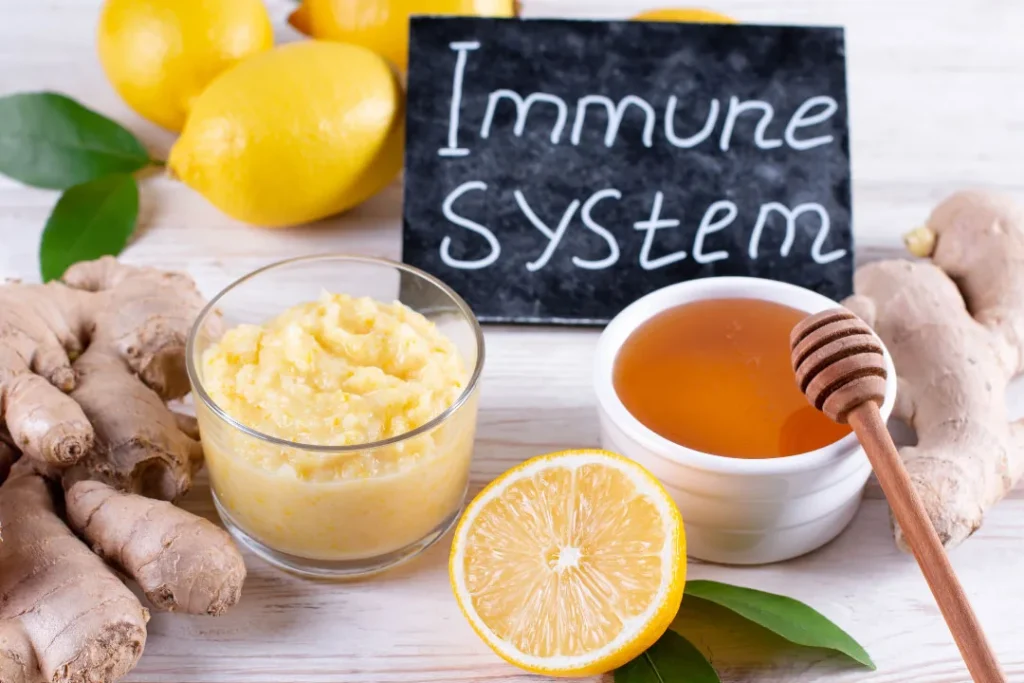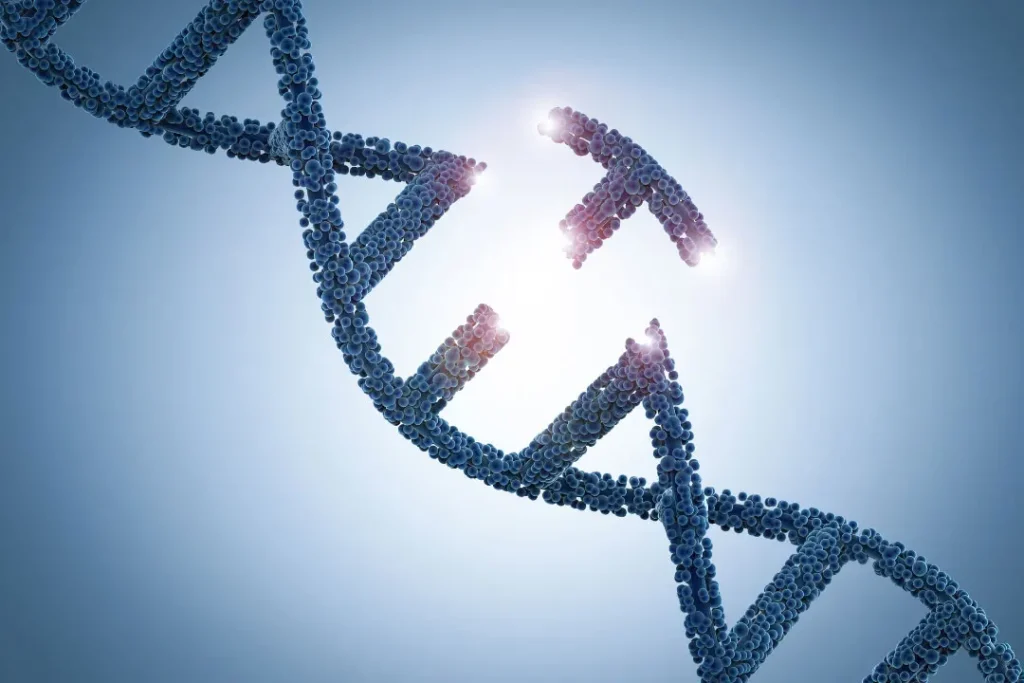Functional mushrooms have been studied for their potential to treat and prevent cancer. We’ll discuss the connection between functional mushrooms and cancer and recommend one of the best mushroom supplement brands on the market.
If you or a loved one are battling cancer, know you are not alone. With an estimated 1.9 million new cancer diagnoses in the United States in 2022 alone, many are or know of someone who is battling this disease. In recent decades, functional mushrooms, particularly certain species like Reishi and Turkey Tail, have undergone rigorous study for their potential anticancer properties. Scientists are finding the bioactive compounds in these unique botanical fungi may provide adjunctive assistance to conventional cancer treatments. While more research is needed, the benefits found thus far seem promising. Read on to see the benefits of functional mushrooms to your overall health and their potential applications to cancer.
You May Also Like:
5 Important Shiitake Mushroom Benefits
Gatorade Immune System Gummies vs. Medicine Man Plant Co.’s The Immune Pill
The Connection Between Mushrooms and Cancer: 5 Great Reasons to Try Functional Mushrooms is an original (News7Health) article.
Mushrooms and cancer:
1. Immune system modulation
Before functional mushrooms ever made it into the labs of Western scientists, they were used for centuries in traditional Eastern medicine. These mushrooms are used in Eastern cultures for immune system support, promoting overall immune health, and creating resistance to certain diseases. Many functional mushrooms contain bioactive compounds like polysaccharides, beta-glucans, and triterpenoids. In mushrooms like Reishi and Turkey Tail, these compounds may modulate the immune system by stimulating your immune response. When the immune system works correctly, it can help the body’s defense against cancer by identifying and destroying cancer cells before they develop into tumors.
Furthermore, some functional mushrooms may stimulate cytokine production. Cytokines are proteins that act as intracellular mediators in your immune system, with some enacting cellular immune responses. Specific immune cells, such as T cells and natural killer (NK) cells, may be able to detect and target cancer cells to prevent growth and metastasis.

Mushrooms and cancer:
2. Anti-inflammatory effects
Chronic inflammation is associated with an increased risk of cancer development and progression. Inflammation may increase the likelihood of DNA mutations leading to uncontrolled cancer cell growth. Chronic inflammation could also reduce cell death and create an environment suitable for cancer cells to grow and survive. Furthermore, inflamed signaling pathways may encourage the expression of genes involved in cell proliferation, survival, and invasion, which may promote and develop cancer in the body.
Many functional mushrooms are studied to have anti-inflammatory properties. Reishi mushrooms may inhibit pro-inflammatory molecules’ production and therefore reduce inflammatory responses. Turkey Tail mushrooms contain Krestin (PSK) and polysaccharide peptide (PSP), which may also possess anti-inflammatory properties. Although cancer is not directly caused by inflammation, inflammation may create an environment that encourages the growth and spread of cancer cells.

Mushrooms and cancer :
3. Antioxidants
Functional mushrooms contain a wealth of antioxidants. Antioxidants prevent free radical cell damage. Free radicals are unstable molecules that can increase oxidative stress on your metabolism. Oxidative stress may contribute to cancer development by causing DNA damage, disrupting cellular signaling, and promoting inflammatory responses.

Mushrooms and cancer:
4. Anti-tumor effects
The bioactive compounds in functional mushrooms are researched for potentially having anti-tumor effects. Although most studies are in vitro studies, conducted in a test tube, these studies find that the polysaccharides and triterpenes in Reishi and Turkey Tail mushrooms may induce cell death and inhibit cell cycle progression in cancer cells. In various animal studies, Reishi has been shown to reduce tumor size and growth. Although limited human studies are available today, the Reishi mushrooms in these studies may also reduce tumor sizes.
The Connection Between Mushrooms and Cancer: 5 Great Reasons to Try Functional Mushrooms is the (News7Health) report.
Mushrooms and cancer:
5. Support during treatment
Popular conventional medical treatments used to fight cancer are chemotherapy and radiation therapy. Often, these treatments elicit unwanted side effects like physical and mental fatigue. Lion’s Mane mushrooms have been researched for their cognitive benefits, possibly alleviating chemo brain, a common occurrence during chemotherapy that creates cognitive impairment. Also, Reishi mushrooms and their immunomodulating effects may help improve energy levels and decrease fatigue.
Mushrooms and cancer:
Top brand for adjunctive help
The bioactive compounds in functional mushrooms are crucial elements researched to possibly adjunct your cancer treatment. Therefore, when searching for a functional mushroom product, you should search for a product with the most bioactive compounds to give you the most benefits possible. Unfortunately, many mushroom products contain fewer bioactive compounds than desired, often mislabeling grain fillers used to grow mushrooms as actual mushroom products. Mislabeling mushrooms leaves a diluted supplement that may let you down.
Real Mushrooms is a functional mushroom company that packs an abundance of bioactive compounds in its products. After finding the mushroom supplement market filled with misinformation and fillers, the founders of Real Mushrooms wanted to give consumers what they desired from their mushrooms: active compounds that provide promising health benefits. Real Mushrooms uses only organic mushrooms (fruiting bodies) that are rich in bioactive compounds with no fillers added and greater than 20% beta-glucans. According to their website, beta-glucans are responsible for many immunological benefits, so ensuring sufficient beta-glucan content can be especially important for an effective mushroom supplement. They sell Reishi, Turkey Tail, and Lion’s Mane pure mushroom extract supplements that have safe added ingredients alongside their quality organic mushrooms.
Battling cancer is difficult enough. You shouldn’t have to sift through products with fillers and false claims. If you are looking for a brand that is backed by science, transparent about its mushroom content, and uses organic farming practices, Real Mushrooms is a clear choice. Since their products are rich in bioactive compounds, you can rest assured that you have the most effective supplements to fit alongside your medical treatment.

Final thoughts
When battling cancer, functional mushrooms, with their many natural benefits, may be the supportive therapy you are looking for to couple with your conventional medical treatment. A mushroom supplement with bioactive compounds and essential nutrients may be the immunity boost you need to aid in your battle against cancer, so selecting a brand transparent in its practices is crucial. Hopefully, now you have sufficient information to assist you in choosing the best mushroom supplement to accompany you or your loved one in the battle against cancer.
Further reading for additional reference:
PubMed: Immune Modulation From Five Major Mushrooms: Application to Integrative Oncology
Frontiers: Ganoderma: A Cancer Immunotherapy Review
Nature: Cytokines and their relationship to the symptoms and outcome of cancer
Natural Medicine Journal: Efficacy of Coriolus Versicolor (Yun Zhi) on Survival in Cancer Patients
Important Note: The information contained in this article (The Connection Between Mushrooms and Cancer: 5 Great Reasons to Try Functional Mushrooms) is for general informational purposes only, and should not be construed as health or medical advice, nor is it intended to diagnose, prevent, treat, or cure any disease or health condition. Before embarking on any diet, fitness regimen, or program of nutritional supplementation, it is advisable to consult your healthcare professional in order to determine its safety and probable efficacy in terms of your individual state of health.
Regarding Nutritional Supplements Or Other Non-Prescription Health Products: If any nutritional supplements or other non-prescription health products are mentioned in the foregoing article, any claims or statements made about them have not been evaluated by the U.S. Food and Drug Administration, and such nutritional supplements or other health products are not intended to diagnose, treat, cure, or prevent any disease.


